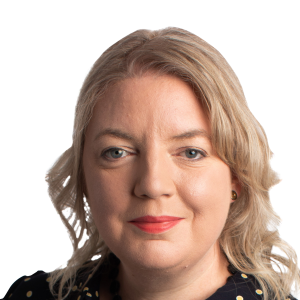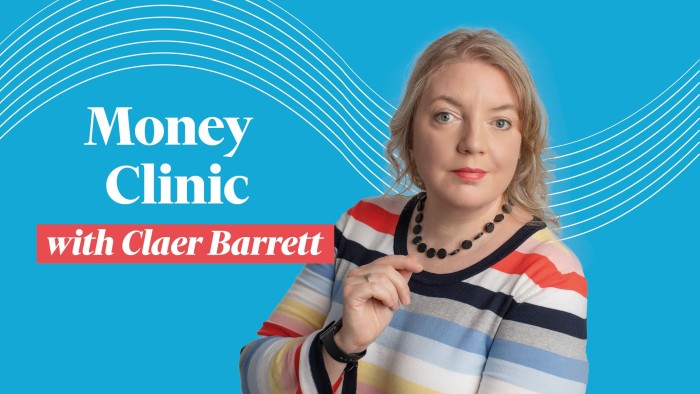‘Bank of Son and Daughter’ could pay dearly for retirement


Roula Khalaf, Editor of the FT, selects her favourite stories in this weekly newsletter.
Another day, and another survey arrives about the dwindling retirement prospects of the over-50s (trigger warning, if that’s you).
You may be disconcerted by studies that show older workers are more likely to have been furloughed, have a higher risk of being made redundant and could struggle to find a new job if that happens (and certainly one that pays as much).
The knock-on result is that many older workers are having to rethink their retirement plans. The Great British Retirement Survey, a poll of 12,000 British investors released this week, provided some fascinating glimpses into how they are doing just that.
The news was so depressing, it came with a side order of cake if you signed up in advance for the online press briefing. I shunned the home-delivered sugar, as my own retirement plan requires losing more weight and staying healthy enough to work into my 70s — a reality that is now dawning on many other survey respondents.
One in five workers aged 60 to 65 said they were delaying retirement plans as a result of the pandemic. More than one in four 55 to 71-year-olds said they now expected to undertake some form of paid work in retirement to supplement their income and offset investment losses.
Of course, those aged 55 and over who face a sudden loss of income could use pension freedoms to take tax-free cash from their retirement pots to tide them over. However, the survey found many parents already thought of this cash as a ready-made housing deposit for their children.
More than half of parents who had already retired said they had helped their children buy a property. Said to be the UK’s tenth biggest mortgage lender, Bomad (the Bank of Mum and Dad) is more generous than its high street equivalents. Of those polled, 41 per cent said they had gifted this money with no expectation that it would ever be paid back (up from 35 per cent a year ago).
A similar number of working parents anticipated they would need to help their children with property deposits in future. Of those who had already tapped their pensions, 21 per cent said they had used at least some of it to help their children buy a home.
“The worry is that many of those raiding their pensions and cash savings now to help their children will find they haven’t enough for their own needs later,” says Rebecca O’Connor, head of pensions at Interactive Investor.
Thus weakened, Bomad’s capital structure could become unsustainable in the future, and later require an injection of liquidity from Bosad (the Bank of Son and Daughter).
Further survey questions exploring this looming intergenerational crunch were the icing on my non-existent cake.
Bosad, it seems, will exercise much tighter capital controls than Bomad. One-third of those polled thought adult children had no duty to support their parents financially. Just over half thought it was appropriate to expect adult children to help if they were earning good money, and their parents were poor. Yet only one in 10 respondents thought adult children should be expected to provide financial assistance to retired parents in all circumstances.
“That’s such a British attitude,” was the reaction of one of my FT colleagues who has worked around the world during the course of his career.
In more traditional societies, children are still very much expected to look after their ageing parents. When we published Alice Kantor’s memorable column last year about why she refused to lend money to her parents, many readers around the world (particularly in Asia) made the same point.
But I wonder how these attitudes will change over the coming years as the lasting financial impact of the pandemic becomes clearer?
While Bomad is hard at work propping up the UK property market, its subsidiary Nomad (the Nursery of Mum and Dad) is busier than ever providing free childcare. Nearly 30 per cent of grandparents polled said they were regularly looking after their grandchildren, up from 18 per cent last year.
A financial lifeline to many working parents with young children, how might Nomad’s future childcare provision be affected if one in four retirees are seeking a (paid) part-time job?
And could these care needs be reversed at a later date? If the older generation has gifted money for property deposits that could have been used to fund social care costs, there may well be growing expectations that children will pay for these or provide them.
FT podcast: Should I pay off my credit cards?

Claer Barrett talks to listener Josh about whether he should pay off his high credit bills — or buy his first property. Listen here
There was also evidence in the retirement survey of how unexpected life events such as serious illness, divorce, the death of a spouse or the onset of caring responsibilities were likely to derail retirement plans — particularly for women. This year, growing numbers of respondents cited redundancy, unemployment and business failure as events they feared would blow them off course. They may not be banging on their children’s doors and asking for a bedroom in the property they helped buy — but they may regret handing over the cash.
Yet more research on the topic this week coined the term “retirement insecurity” to describe the unpredictable future faced by millions with defined contribution pensions as investment growth slows and the state pension age rises. Working for longer is the obvious solution — but that reminds me of those gloomy studies about the employment prospects for the over-50s. The moral of all of these stories? You can’t have your cake and eat it.
Claer Barrett is the FT’s consumer editor, and a financial commentator on Eddie Mair’s LBC drive-time show, on weekdays between 4-7pm: claer.barrett@ft.com; Twitter @Claerb; Instagram @Claerb
Comments